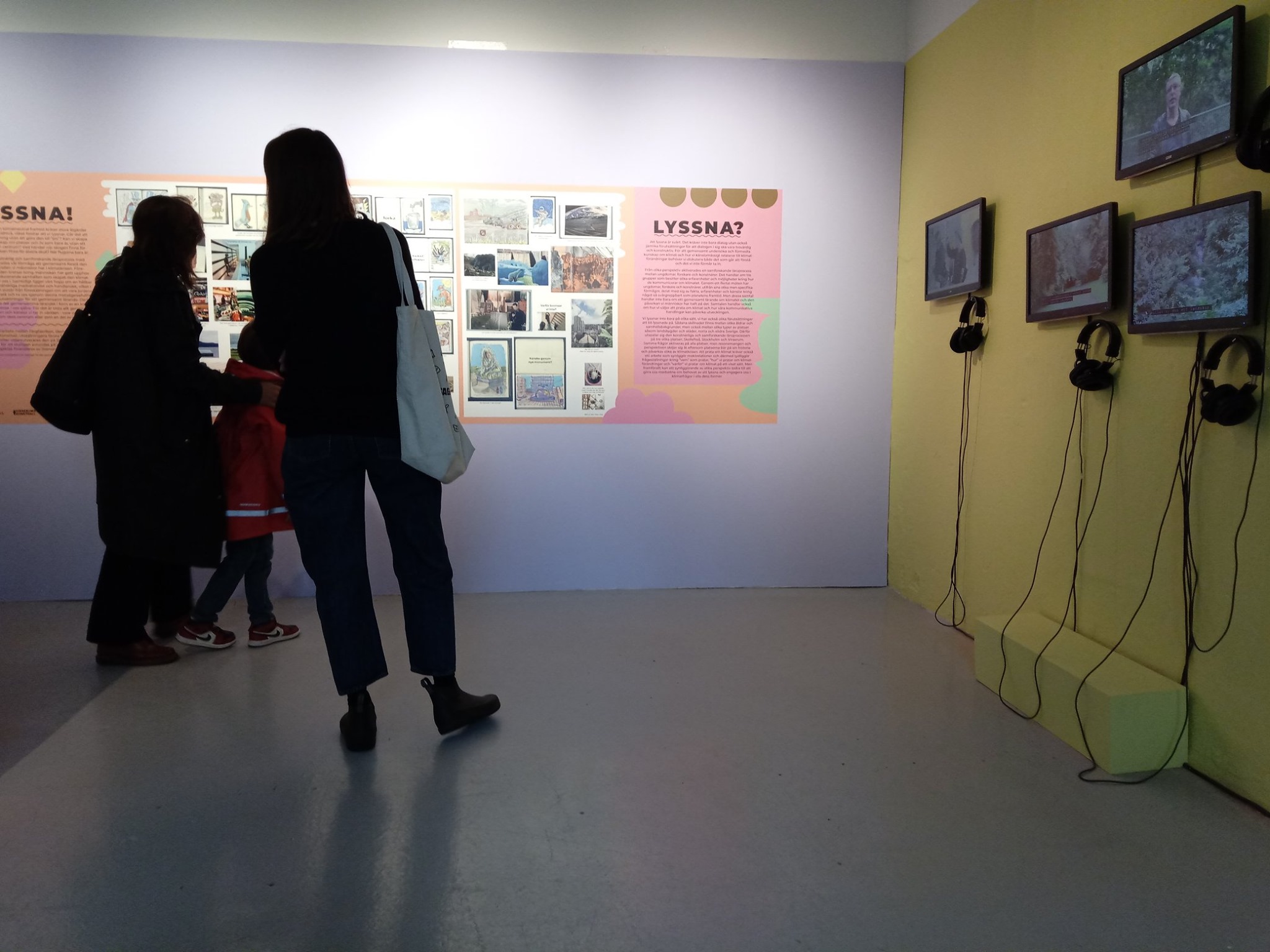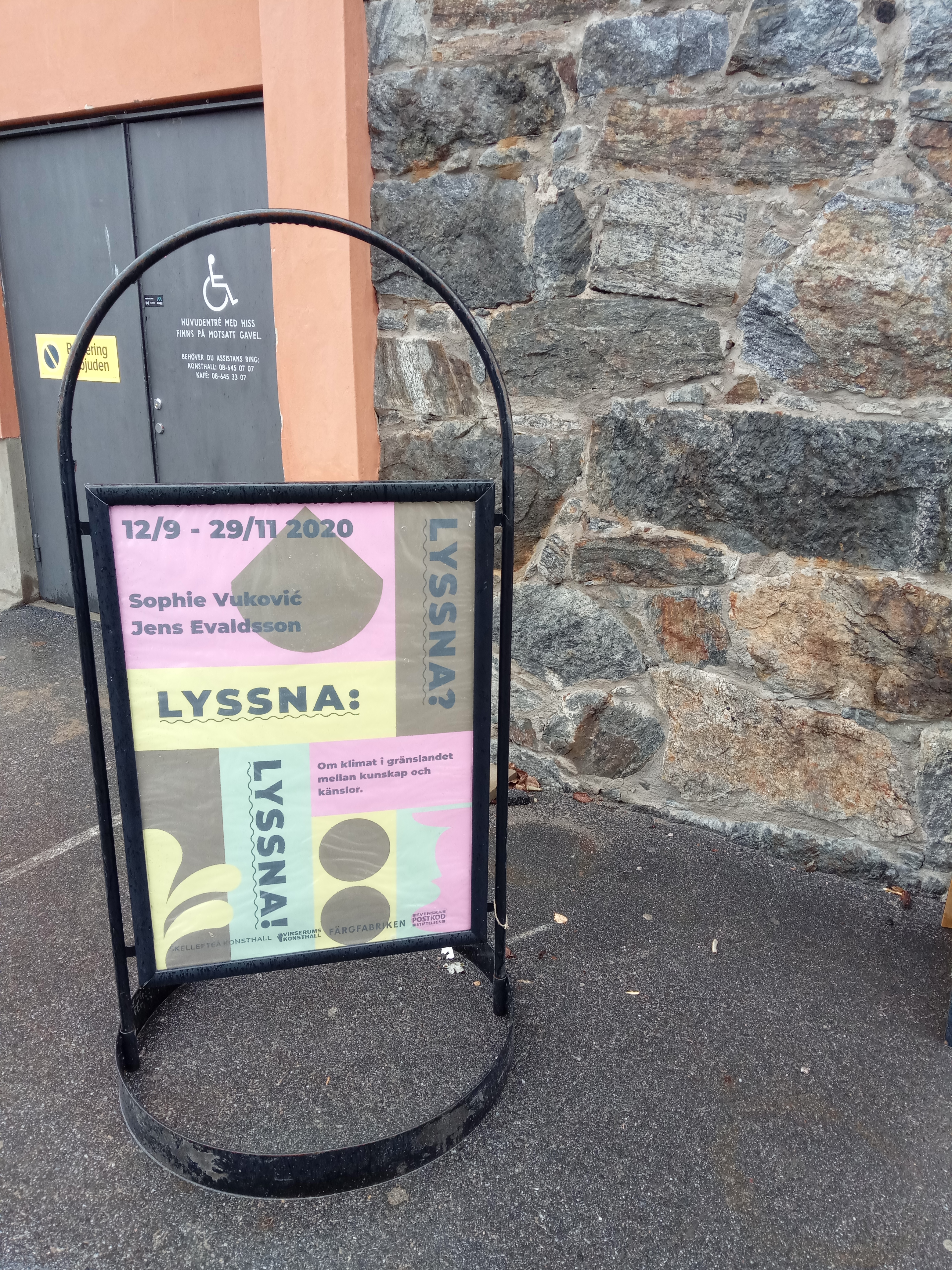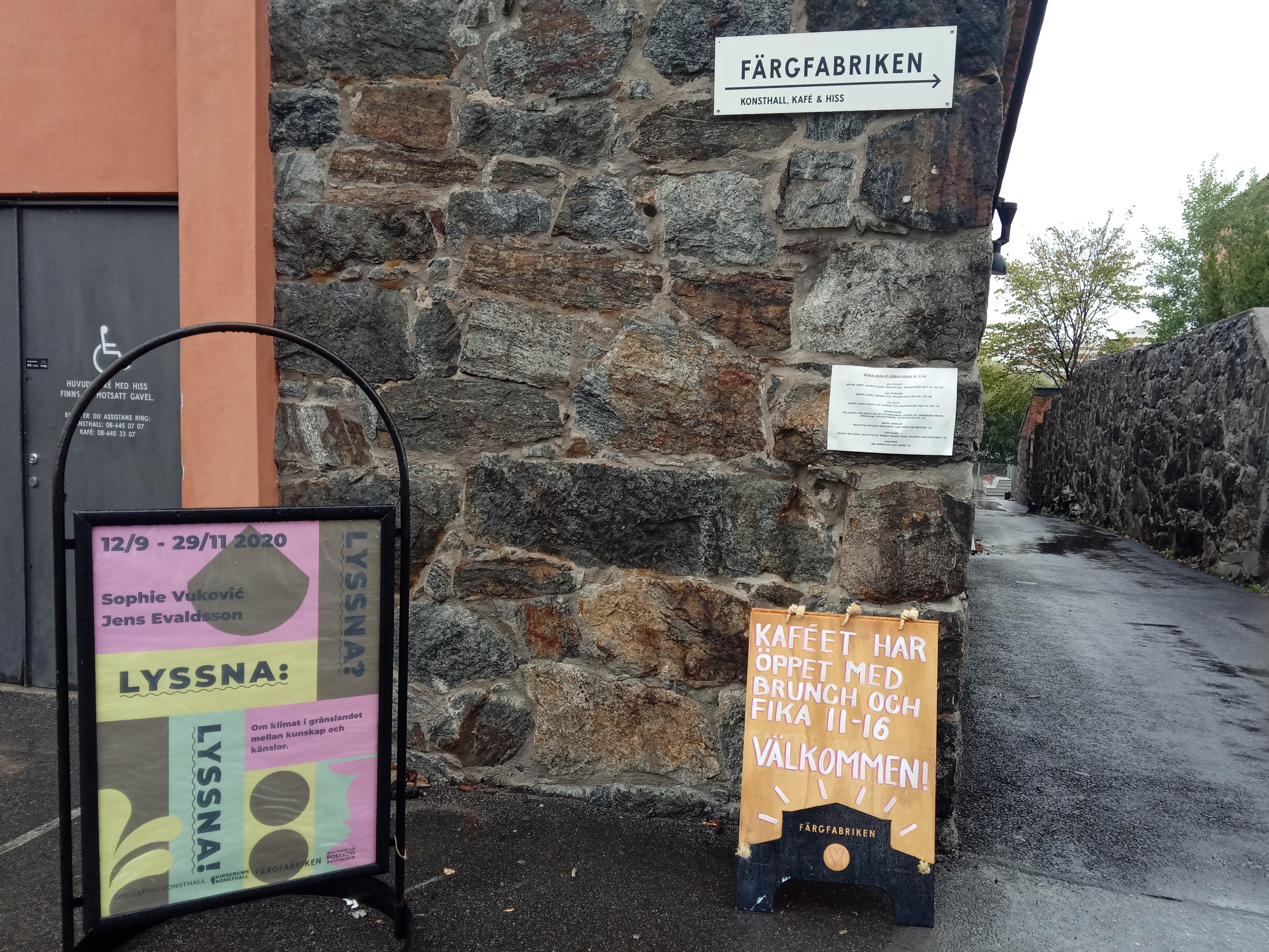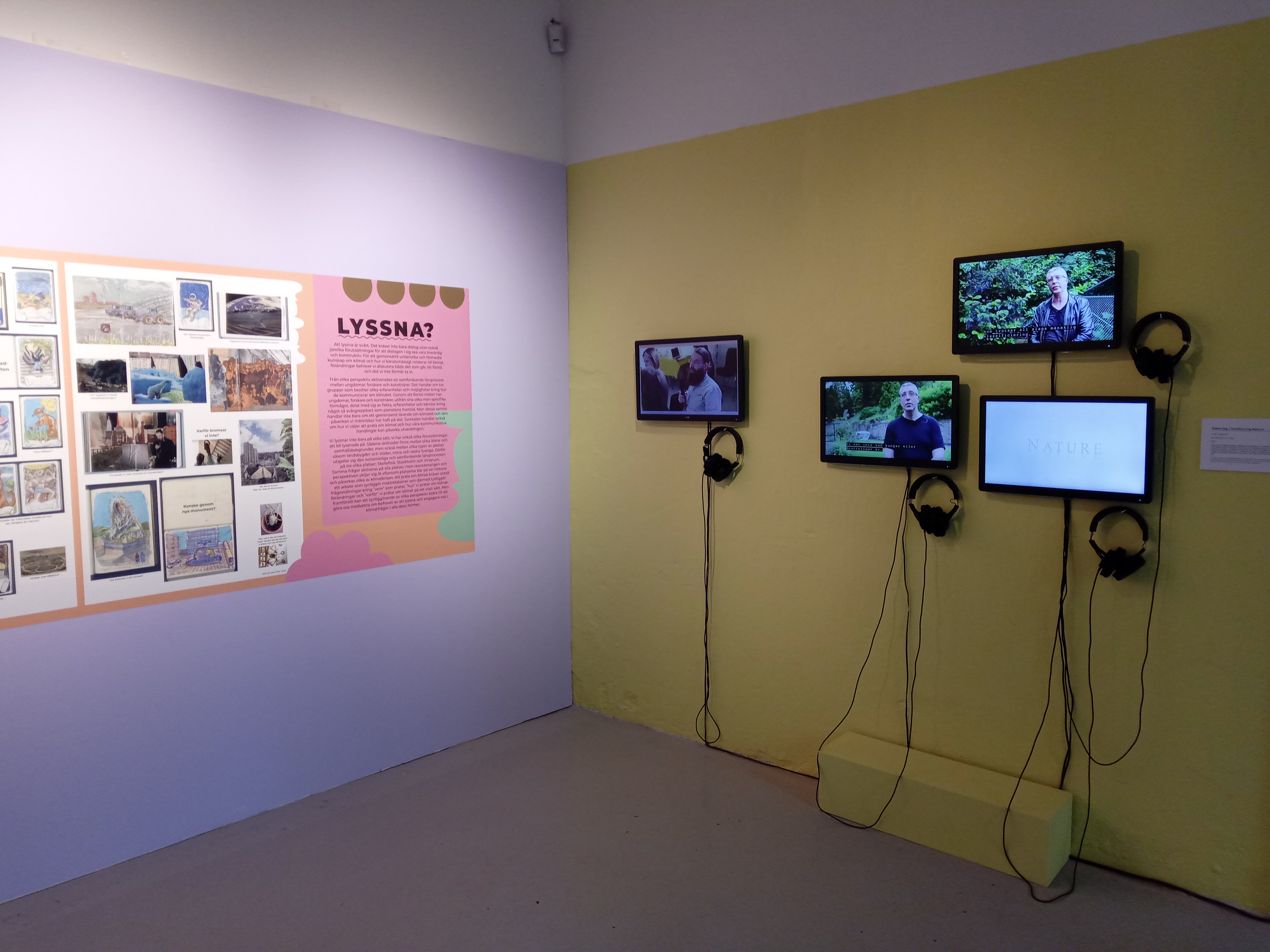Lyssna exhibition at Färgfabriken

Silencing / Unsilencing Nature: A series of video essays
Three video essays of the Silencing/Unsilencing Nature project, authored by Nico Carpentier, have been included in the Lyssna! exhibition at the Swedish contemporary arts centre Färgfabriken. The exhibition opened on 12 September 2020 and will run until 29 November 2020. It is part of the Lyssna! project, which investigates how we emotionally experience and communicate climate change. Färgfabriken, Virserums art gallery and Skellefteå art gallery created with the Lyssna! project a forum where young people, researchers and artists can collaborate to explore the relationships between climate change, knowledge and emotion, also allowing for radical revaluations of the self-claimed centrality of humanity.
The three Silencing/Unsilencing Nature video essays unpack the discursive-material relationship between humans and nature, and reflect on how nature often has been silenced. At the same time, they investigate how nature can be given a voice and become unsilenced again. They have been produced by Nico Carpentier (who is based at the Institute of Communication Studies and Journalism (ICSJ) at Charles University in Prague), in collaboration with Färgfabriken, within the framework of the MISTRA Environmental Communication (MEC) Research Programme.
Links:
- https://fargfabriken.se/sv/projekt/lyssna
- http://mistra.fsv.cuni.cz/
- https://www.slu.se/en/subweb/mistra-ec/
- http://nicocarpentier.net/
- https://iksz.fsv.cuni.cz/
Background note
Silencing / Unsilencing Nature unpacks the discursive-material relationship between humans and nature, and reflects on how nature often has been silenced. At the same time, it investigates how nature can be given a voice and become unsilenced again. The video essays explain how human control is exercised over nature, partially through discourses—structured ways of thinking about the world, ourselves and others—and partially through human’s ability to manipulate the material world. But our discourses are not perfectly stable and all-encompassing; they are object of political struggles and thus contain many contingencies, contradictions and gaps. Moreover, the material world has its own agency, and is not perfectly malleable by humans. It resists our manipulations. These gaps and resistances also open up opportunities to rethink our dominant ways of dealing with nature, and allow us to develop discursive-material practices that take nature seriously, and empathically speak from nature’s perspective. One example, developed in the video essays, is the position of the wolf in the zoo assemblage, how these animals are discursively and materially entrapped, and how their voices can be made audible and gain more strength.
These video essays are part of an educational package that will feature in Färgfabriken’s Lyssna! project, inviting the participating youngsters to unsilence nature. The essays have been developed through a collaboration between Färgfabriken and the Institute of Communication Studies and Journalism (ICSJ) at Charles University in Prague, within the framework of the MISTRA Environmental Communication (MEC) Research Programme. The MEC Research Programme is a four-year research project, based in Sweden, coordinated by the Swedish University of Agricultural Sciences and implemented by an international consortium. The MEC Research Programme aims to reframe Swedish environmental communication so it can effectively underpin and foster sustainability transformations. It is grounded in a transdisciplinary approach that articulates different centres of knowledge production, some of which are based in academia and in the arts.


